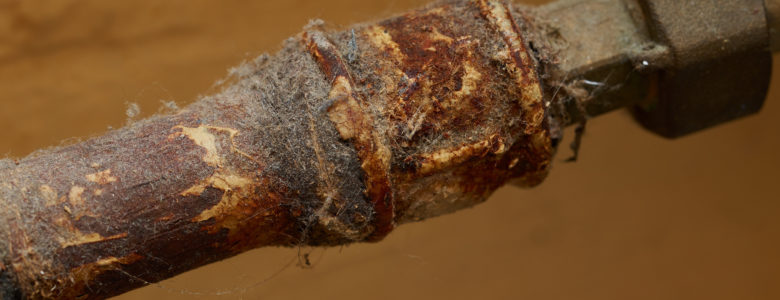Pipelines run everywhere at your business-through the walls, floors, and even underground. If a pipe corrodes or bursts, that could cause major problems and you may even need to close shop while everything gets fixed.
You do not want that to happen!
There are many kinds of pipes, and many of the best options have a chance of corroding. Corrosion can be caused by many things. If you want to prevent the problem, you’ll have to plan accordingly.
In this article, we’ll discuss pipe corrosion prevention so you never have to worry about more major problems.
1. Use the Right Materials
By using the right materials on your pipes, you can drastically reduce the chances of pipeline corrosion. Steel, concrete, and copper are commonly used substances but are a bit more likely to corrode than stainless steel, plastic, or composite materials that are made to last.
Of course, the material you use depends on the application. Sometimes you will need to use a specific material, but if there are multiple options for a pipe, it may be wise to use something that is less likely to corrode.
2. Protect with Proper Linings
One of the best ways to protect from corrosion is to have a protective layer on the outside. This is actually a simple process that is done before installing pipes.
Typically it comes in the form of a peel and stick pad. You just peel off the backing and apply a pad to the surface of the pipelines.
The point of this is to reduce metal on metal, which can lead to corrosion. However, it has other protective benefits as well. These pads are UV resistant, meaning they will help the pipes last longer and they resist moisture, which can also prolong the life of the pipes.
3. Hide Your Seams
It is vital that you weld, solder, or seal all the pipe’s seams in some way.
You need to make sure everything is smooth so no shards of pipe can become a breeding ground for corrosion. Hiding the seams properly also ensures that nothing can get in that could cause potential problems.
4. Cathodic Protection
Cathodic protection, or CP for short, is a process that uses electricity to control the corrosion of pipeline materials.
In simple terms, you use a direct electrical current that is attached to your metal piping but uses a sacrificial material that will corrode instead. It sounds complicated but is actually a simple process that is used all around the world to protect pipelines.
What if Pipe Corrosion Prevention Doesn’t Help?
By taking the proper steps, you can prevent a lot of problems. Unfortunately, if you are using steel or copper piping, then eventually there will be some corrosion. At this point, the pipes will need to be fixed or replaced.
If your pipes are past the point of preventing problems, then don’t waste time trying to fix them yourself and potentially make it worse.
Hire someone who knows what they are doing and can help right away. Just contact us if you want more information on pipe corrosion prevention.



Leave a Reply